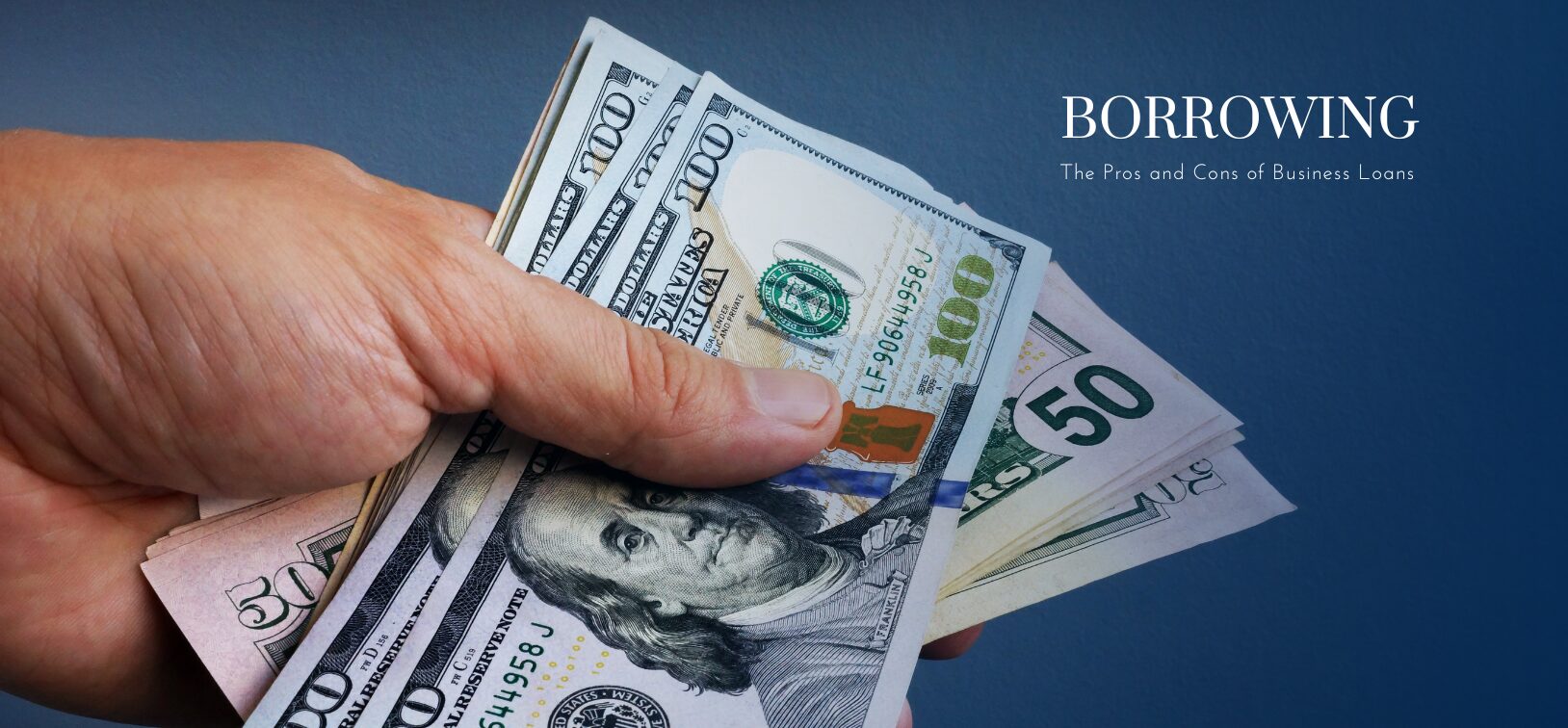Businesses normally borrow money to cover expenses that they cannot immediately afford. In some cases, they may take loans to manage their cash flow or establish or improve their credit history.
But are loans really worth it, and what’s the real cost of borrowing? Let’s go over the pros and cons of business loans.
Why Take a Business Loan?
Business loans are essentially about managing expenses or cash flow. In the cases where it’s more about establishing credit, the goal is working towards qualifying for better loans in the future.
The main reasons why businesses take loans are:
- Purchasing equipment or inventory.
- Financing a business expansion.
- Purchasing new land (business mortgage).
- Managing discrepancies in cash flow.
Is a Loan Worth It: The Negatives?
Most business owners who need financing are forced to weigh the potential negatives of taking a loan:
- Repayment pressure.
- Interest costs.
- Collateral risk.
- Credit score risk.
- Overleveraging risk.
- In extreme cases, risk of bankruptcy.
These potential cons are very real and should not be understated. Borrowing money is a serious commitment that has long-term implications for your business. There are these direct costs, and then there are big picture risks that harm your chances of conducting business successfully in the future.
What About the Positives?
On the other side, business loans can provide enormous benefits when used responsibly:
- Starting or expanding a business without adequate capital.
- Ensuring your business can survive when it otherwise could not.
- Unlocking better interest rates in the future.
The list may be shorter, but it includes everything that a business needs but cannot afford to pay for right away. It’s normal for businesses to take loans to cover various expenses or their cash flow needs. According to the Federal Reserve Bank of Philadelphia’s Small Business Credit Survey, approximately 56% of New Jersey small businesses sought loans in 2022.
In addition to all other sources of funding, bank loans provide another avenue for covering expected and unexpected expenses.
When Borrowing is the Right Choice
Taking a bank loan is normally the right choice when it’s:
1) Safe to take one.
2) Less risky alternatives are not available.
Many small businesses can use personal funding, grants, or other sources to fund expenses. But a lot of the time, business owners don’t have access to those resources. These situations are why business loans exist in the first place.
If the above description describes you and your business, then loans are likely worth considering. The other green flags that normally make business loans a safer option for businesses include:
- Consistent and predictable cash flow.
- The loan financing a purchase that directly contributes to increased revenue.
- Manageable interest rates and favorable repayment terms.
- A clear and profitable plan to repay the loan.
- The expenses are necessary.
If a lot of what we’ve covered here describes your business, loans are likely a worthwhile decision.
On the other hand, consider the opposite of these points as red flags. Unmanageable loans for unnecessary expenditures are more likely to harm your business.
Borrowing Around the Globe
If your entity is set up abroad, you aren’t barred from accessing local business financing. For example, you can get a loan of up to €5,000,000 in France so long as they don’t violate sanctions. In New Zealand, getting a loan for a new business can be more difficult. But if you have the qualifications and documents for the specific type of loan, you can easily qualify for one.
In most countries, foreign companies can access business loans without too many extra hurdles.
Unsecured Business Loans
Unsecured business loans do not carry the risk of losing collateral. However, they normally come with much lower borrowing limits and other measures to offset the lender’s increased risk. However, it’s still possible to get unsecured business loans in high amounts. For example, you can borrow £350,000 in the UK or $350,000 in the US without collateral.
If you start looking for unsecured business loans, expect your borrowing credentials to be more important. Without collateral, lenders want more assurances regarding their borrower’s abilities to repay. At the same time, they will normally charge higher rates and fees to make up for the heightened risk.
Where to Get Business Loans
There are two main choices when you’re looking for business loans: traditional lenders or alternative lenders.
Traditional lenders like banks and credit unions normally offer better rates and longer repayment terms. Their business loans are normally more exclusive, servicing borrowers that have accounts in good standing.
Alternative lenders serve a wide range of business borrowers. They normally offer faster service but rates and terms that are less competitive, as well as less customer service.
The good news is that business loans can be accessed relatively quickly and easily now.
Business Loans in South Africa
There are many business lenders in South Africa that can serve those unqualified for grants. You can apply for a loan of up to 100,000,000 Rand and get approved in less than 24 hours. First, take the time to compare local lenders and the rates and terms they offer.































